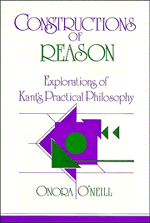Book contents
10 - Children's rights and children's lives
Published online by Cambridge University Press: 05 June 2012
Summary
A friend who lived in New York could not see the sky from her windows. To discover the day's weather she had to peer at a glass-fronted building opposite, which offered a blurred reflection of part of the sky above her own building. I shall argue that when we take rights as fundamental in looking at ethical issues in children's lives we also get an indirect, partial and blurred picture. If no more direct, clearer and fuller account can be had, we will have to rely on any oblique and partial light that a theory of children's fundamental rights provides. If a clearer, more direct and more complete view of ethical aspects of children's lives is available, we have good reason to prefer it.
We may begin with a reminder of the appeal and importance of thinking in terms of children's rights. Children easily become victims. If they had rights, redress would be possible. Rather than being powerless in the face of neglect, abuse, molestation and mere ignorance, they (like other oppressed groups) would have legitimate and (in principle) enforceable claims against others. Although they (unlike many other oppressed groups) cannot claim their rights for themselves, this is no reason for denying them rights. Rather, it is reason for setting up institutions that can monitor those who have children in their charge and intervene to enforce rights.
- Type
- Chapter
- Information
- Constructions of ReasonExplorations of Kant's Practical Philosophy, pp. 187 - 205Publisher: Cambridge University PressPrint publication year: 1990
- 2
- Cited by



